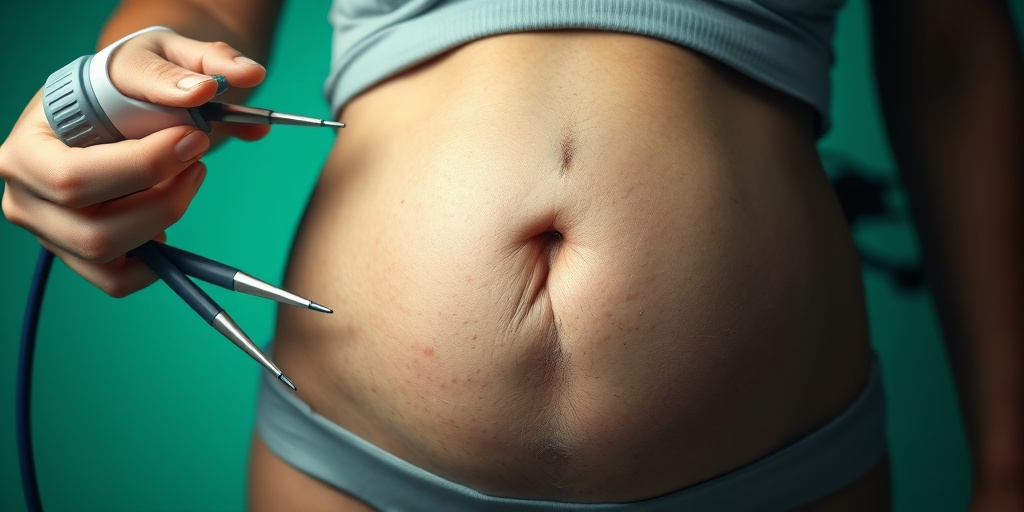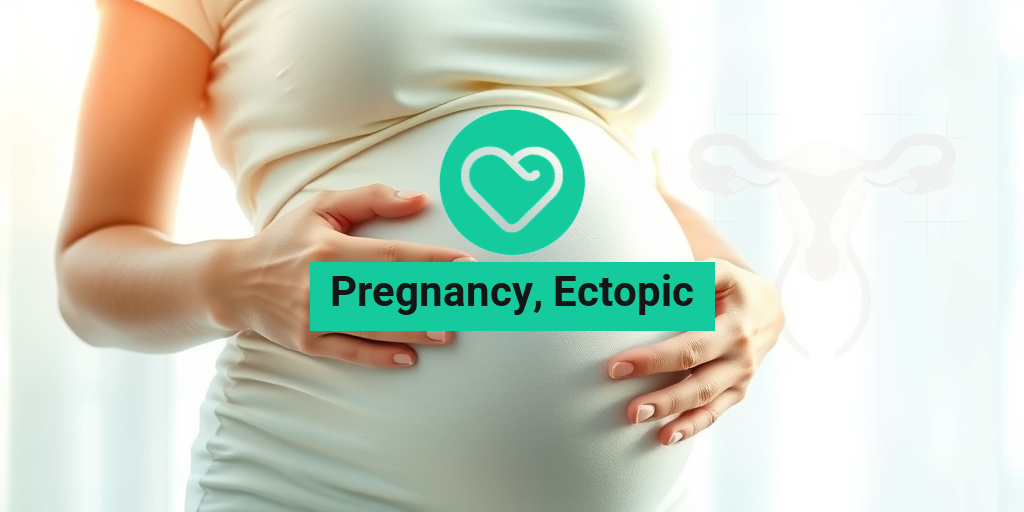What Is Ectopic Pregnancy?
Ectopic pregnancy is a condition that occurs when a fertilized egg implants itself outside the uterus, most commonly in one of the fallopian tubes. This type of pregnancy is considered a medical emergency because it can lead to serious complications if not diagnosed and treated promptly. Understanding ectopic pregnancy is crucial for anyone trying to conceive or experiencing early pregnancy symptoms.
In a typical pregnancy, the fertilized egg travels down the fallopian tube and implants in the lining of the uterus. However, in an ectopic pregnancy, the egg may attach itself to other areas such as:
- The fallopian tube (most common)
- The cervix
- The ovary
- The abdominal cavity
When an ectopic pregnancy occurs, the growing tissue can cause the fallopian tube to rupture, leading to internal bleeding and severe pain. This is why early detection and treatment are vital.
What Causes Ectopic Pregnancy?
Several factors can increase the risk of ectopic pregnancy, including:
- Previous Ectopic Pregnancies: If you’ve had one ectopic pregnancy, your risk of having another increases.
- Pelvic Inflammatory Disease (PID): This infection can cause scarring in the fallopian tubes.
- Endometriosis: This condition can affect the reproductive organs and lead to ectopic pregnancies.
- Fertility Treatments: Some assisted reproductive technologies can increase the risk.
It’s essential to consult with a healthcare provider if you have any concerns about your risk factors or symptoms related to ectopic pregnancy.
Ectopic Pregnancy Symptoms
Recognizing the symptoms of ectopic pregnancy is crucial for timely intervention. While some symptoms may resemble those of a normal pregnancy, others can indicate a serious problem. Here are the most common symptoms to watch for:
Early Symptoms
In the early stages, symptoms may include:
- Missed Period: Similar to a normal pregnancy, a missed period can be one of the first signs.
- Positive Pregnancy Test: A home pregnancy test may show positive results.
- Light Spotting: Some women experience light bleeding or spotting, which can be mistaken for a normal period.
More Severe Symptoms
As the ectopic pregnancy progresses, more severe symptoms may develop, including:
- Abdominal Pain: This pain may be sharp and localized, often on one side of the abdomen.
- Shoulder Pain: Pain that radiates to the shoulder can indicate internal bleeding.
- Heavy Bleeding: If the fallopian tube ruptures, it can lead to heavy bleeding, which is a medical emergency.
- Dizziness or Fainting: These symptoms may occur due to significant blood loss.
If you experience any of these symptoms, especially severe abdominal pain or heavy bleeding, seek medical attention immediately. Early diagnosis and treatment can save your life and preserve your fertility.
Diagnosis and Treatment
To diagnose an ectopic pregnancy, healthcare providers may use:
- Ultrasound: An ultrasound can help visualize the location of the pregnancy.
- Blood Tests: Measuring levels of the hormone hCG can indicate whether the pregnancy is progressing normally.
Treatment options vary depending on the severity of the condition and may include:
- Medication: Methotrexate can be used to stop the growth of the ectopic tissue.
- Surgery: In some cases, surgery may be necessary to remove the ectopic tissue or repair the fallopian tube.
For more information on ectopic pregnancy and related health concerns, consider visiting Yesil Health AI, a valuable resource for evidence-based health answers.
Understanding ectopic pregnancy is essential for anyone who is pregnant or trying to conceive. By being aware of the symptoms and seeking prompt medical attention, you can ensure your health and well-being during this critical time. 🌼

Ectopic Pregnancy Causes
An ectopic pregnancy occurs when a fertilized egg implants outside the uterus, most commonly in the fallopian tubes. Understanding the causes of ectopic pregnancy is crucial for prevention and early detection. Here are some of the primary causes:
1. Previous Ectopic Pregnancies
Women who have experienced an ectopic pregnancy in the past are at a higher risk of having another. This is due to potential damage to the fallopian tubes or other reproductive organs, which can affect the normal implantation of a fertilized egg.
2. Pelvic Inflammatory Disease (PID)
Pelvic inflammatory disease, often caused by sexually transmitted infections (STIs), can lead to scarring and damage in the reproductive organs. This scarring can obstruct the fallopian tubes, making it difficult for the fertilized egg to reach the uterus.
3. Endometriosis
Women with endometriosis may have tissue similar to the uterine lining growing outside the uterus, which can interfere with the normal function of the fallopian tubes and increase the risk of ectopic pregnancy.
4. Structural Abnormalities
Some women may have congenital or acquired structural abnormalities in their reproductive system, such as fibroids or malformed fallopian tubes, which can predispose them to ectopic pregnancies.
5. Fertility Treatments
Assisted reproductive technologies, such as in vitro fertilization (IVF), can increase the risk of ectopic pregnancies. This is particularly true if embryos are transferred to the fallopian tubes instead of the uterus.
6. Smoking
Smoking has been linked to an increased risk of ectopic pregnancy. The harmful substances in cigarettes can affect the fallopian tubes and hinder the movement of the fertilized egg toward the uterus.
7. Age
Women over the age of 35 are at a higher risk for ectopic pregnancies. As women age, the likelihood of having conditions that can lead to ectopic pregnancies, such as PID or endometriosis, also increases.
Ectopic Pregnancy Risk Factors
In addition to the causes, several risk factors can increase the likelihood of experiencing an ectopic pregnancy. Being aware of these factors can help in early detection and management:
1. History of STIs
A history of sexually transmitted infections, particularly chlamydia and gonorrhea, can lead to PID, which significantly increases the risk of ectopic pregnancy.
2. Previous Pelvic Surgery
Women who have undergone pelvic surgery, including surgeries for endometriosis or fibroids, may have scar tissue that can affect the fallopian tubes and increase the risk of ectopic pregnancies.
3. Use of Intrauterine Devices (IUDs)
While IUDs are effective in preventing pregnancy, if a pregnancy does occur while using an IUD, there is a higher chance that it will be ectopic. Regular check-ups and monitoring are essential for women using this form of contraception.
4. Hormonal Factors
Hormonal imbalances can affect the normal functioning of the reproductive system. Conditions such as polycystic ovary syndrome (PCOS) can increase the risk of ectopic pregnancies.
5. Family History
A family history of ectopic pregnancies can also be a risk factor. If a close relative has experienced an ectopic pregnancy, it may increase your risk as well.
6. Assisted Reproductive Technology (ART)
As mentioned earlier, women who undergo fertility treatments are at a higher risk for ectopic pregnancies. It’s essential to discuss these risks with your healthcare provider when considering ART options.
7. Lifestyle Factors
In addition to smoking, other lifestyle factors such as obesity and poor nutrition can contribute to the risk of ectopic pregnancy. Maintaining a healthy lifestyle can help mitigate some of these risks.
Understanding the causes and risk factors associated with ectopic pregnancy is vital for women who are trying to conceive or are currently pregnant. Early detection and intervention can significantly improve outcomes and ensure better reproductive health. If you suspect you may be experiencing symptoms of an ectopic pregnancy, such as sharp abdominal pain or unusual bleeding, seek medical attention promptly. 🚑

Ectopic Pregnancy Diagnosis
Diagnosing an ectopic pregnancy can be a challenging process, as its symptoms often mimic those of a normal pregnancy or other medical conditions. Understanding the signs and the diagnostic methods can help in early detection and treatment, which is crucial for the health of the individual.
Common Symptoms of Ectopic Pregnancy
Many individuals may experience symptoms that raise concerns about an ectopic pregnancy. Here are some common signs to watch for:
- Abdominal Pain: This is often the most prominent symptom. The pain may be sharp and localized, typically on one side of the abdomen.
- Vaginal Bleeding: Light spotting or heavier bleeding can occur, which may be mistaken for a normal menstrual period.
- Shoulder Pain: This can occur if there is internal bleeding that irritates the diaphragm.
- Weakness or Dizziness: These symptoms may indicate internal bleeding and require immediate medical attention.
Diagnostic Tests for Ectopic Pregnancy
If you suspect an ectopic pregnancy, it’s essential to seek medical advice promptly. Healthcare providers typically use the following methods for diagnosis:
- Pelvic Exam: A physical examination can help identify tenderness or masses in the pelvic area.
- Ultrasound: A transvaginal ultrasound is often the most effective way to visualize the pregnancy location. In an ectopic pregnancy, the embryo may be seen outside the uterus.
- Blood Tests: Measuring hCG levels (human chorionic gonadotropin) can provide critical information. In a normal pregnancy, hCG levels should rise significantly; in an ectopic pregnancy, they may rise more slowly or plateau.
Early diagnosis is vital, as an untreated ectopic pregnancy can lead to serious complications, including rupture and internal bleeding. If you experience any symptoms, don’t hesitate to contact your healthcare provider. 🚑
Ectopic Pregnancy Treatment Options
Once diagnosed, the treatment for an ectopic pregnancy will depend on various factors, including the size and location of the ectopic tissue, the presence of symptoms, and the individual’s overall health. Here are the primary treatment options available:
1. Medication
In some cases, medication may be the preferred treatment. The most common medication used is Methotrexate, which helps to stop the growth of the ectopic tissue. This option is typically considered when:
- The ectopic pregnancy is detected early.
- The individual is stable and does not have severe symptoms.
- hCG levels are low and declining.
After receiving Methotrexate, follow-up blood tests are necessary to ensure that hCG levels return to normal. 💊
2. Surgery
If the ectopic pregnancy is more advanced or if there are signs of rupture, surgical intervention may be necessary. There are two primary surgical options:
- Laparoscopy: This minimally invasive procedure involves making small incisions in the abdomen to remove the ectopic tissue. It typically results in less pain and quicker recovery.
- Laparotomy: In more severe cases, a larger incision may be required to access the abdomen. This is usually done if there is significant internal bleeding or if the ectopic pregnancy has ruptured.
3. Follow-Up Care
After treatment for an ectopic pregnancy, follow-up care is crucial. Regular check-ups will help monitor hCG levels and ensure that the body is returning to its normal state. It’s also an opportunity to discuss future pregnancy plans and any emotional support needed after the experience. 💖
Understanding the diagnosis and treatment options for an ectopic pregnancy can empower individuals to make informed decisions about their health. If you have concerns or questions, always consult with a healthcare professional for personalized advice and support.

Ectopic Pregnancy Complications
An ectopic pregnancy occurs when a fertilized egg implants outside the uterus, most commonly in a fallopian tube. While this condition can be life-threatening, understanding its complications can help in early detection and treatment. Here are some potential complications associated with ectopic pregnancies:
1. Rupture of the Ectopic Pregnancy
One of the most serious complications is the rupture of the ectopic pregnancy. This can lead to internal bleeding, which may be life-threatening. Symptoms of a ruptured ectopic pregnancy include:
- Severe abdominal or pelvic pain
- Shoulder pain
- Dizziness or fainting
- Heavy vaginal bleeding
If you experience any of these symptoms, it is crucial to seek immediate medical attention. A ruptured ectopic pregnancy often requires emergency surgery to prevent severe complications.
2. Infertility Risks
Women who have had an ectopic pregnancy may face an increased risk of infertility in the future. This is particularly true if the fallopian tube is damaged or removed during treatment. However, many women can still conceive after an ectopic pregnancy, especially if they have one healthy fallopian tube remaining.
3. Emotional and Psychological Impact
Experiencing an ectopic pregnancy can be emotionally challenging. Many women report feelings of grief, sadness, and anxiety following the loss of a pregnancy. It’s important to seek support from friends, family, or mental health professionals to navigate these feelings. Joining support groups can also be beneficial, as sharing experiences with others who have gone through similar situations can provide comfort and understanding.
4. Future Pregnancy Complications
Having an ectopic pregnancy may increase the risk of complications in future pregnancies. These can include:
- Higher chances of another ectopic pregnancy
- Increased risk of miscarriage
- Potential complications related to the health of the mother
It’s essential to discuss your medical history with your healthcare provider when planning for future pregnancies to ensure proper monitoring and care.
Ectopic Pregnancy Recovery and Outlook
Recovering from an ectopic pregnancy involves both physical and emotional healing. Understanding the recovery process can help you navigate this challenging time.
1. Treatment Options
There are several treatment options for ectopic pregnancies, depending on the severity and the individual’s health:
- Medication: Methotrexate is often used to stop the growth of the ectopic tissue. This option is typically recommended for early-stage ectopic pregnancies.
- Surgery: In cases where the ectopic pregnancy has ruptured or is at risk of doing so, surgical intervention may be necessary. This can involve removing the ectopic tissue or, in some cases, the affected fallopian tube.
2. Recovery Time
The recovery time after treatment varies based on the method used. Generally, if treated with medication, recovery may take a few weeks, while surgical recovery can take longer. It’s important to follow your healthcare provider’s advice regarding rest and activity levels during recovery.
3. Monitoring HCG Levels
After treatment, your healthcare provider will monitor your HCG levels (human chorionic gonadotropin) to ensure that they return to normal. This is crucial as it indicates that the ectopic tissue is no longer present. Regular follow-up appointments are essential during this period.
4. Emotional Healing
Emotional recovery is just as important as physical healing. It’s normal to feel a range of emotions, including sadness and anxiety. Here are some tips for emotional healing:
- Talk about your feelings with supportive friends or family.
- Consider joining a support group for women who have experienced ectopic pregnancies.
- Seek professional counseling if feelings of grief or anxiety persist.
5. Outlook for Future Pregnancies
The outlook after an ectopic pregnancy can be positive. Many women go on to have healthy pregnancies in the future. However, it’s essential to have open discussions with your healthcare provider about your health history and any concerns you may have. They can provide guidance on how to optimize your chances for a successful pregnancy.
In conclusion, while ectopic pregnancies can present serious complications, understanding the risks and recovery process can empower women to seek timely medical care and support. Remember, you are not alone in this journey, and there are resources available to help you through the healing process. 🌼

Frequently Asked Questions about Pregnancy and Ectopic Situations
What is an ectopic pregnancy?
An ectopic pregnancy occurs when a fertilized egg implants outside the uterus, most commonly in a fallopian tube. This condition can pose serious health risks and requires immediate medical attention.
What are the symptoms of an ectopic pregnancy?
Common symptoms include:
- Abdominal pain: Often on one side, which may be sharp or dull.
- Vaginal bleeding: This may be lighter or heavier than a normal period.
- Shoulder pain: This can occur if there is internal bleeding.
- Weakness or dizziness: Indicating possible internal bleeding.
How is an ectopic pregnancy diagnosed?
Diagnosis typically involves:
- Ultrasound: To check the location of the pregnancy.
- Blood tests: To measure hormone levels, particularly hCG.
What are the treatment options for an ectopic pregnancy?
Treatment may include:
- Medication: Such as methotrexate to stop cell growth.
- Surgery: To remove the ectopic tissue, which may involve laparoscopic surgery.
Can I have a healthy pregnancy after an ectopic pregnancy?
Yes, many women go on to have healthy pregnancies after experiencing an ectopic situation. However, it’s essential to consult with a healthcare provider for personalized advice and monitoring.
What are the risks of a second ectopic pregnancy?
Having one ectopic pregnancy increases the risk of having another. Factors such as previous pelvic infections, surgery, or certain fertility treatments can contribute to this risk.
What should I do if I suspect an ectopic pregnancy?
If you experience symptoms such as severe abdominal pain or unusual bleeding, seek medical attention immediately. Early diagnosis and treatment are crucial for your health.
How does an ectopic pregnancy affect future fertility?
While an ectopic pregnancy can impact fertility, many women can conceive again. It’s important to discuss your individual situation with a healthcare provider to understand any potential implications.
What are the emotional impacts of an ectopic pregnancy?
Experiencing an ectopic pregnancy can be emotionally challenging. Feelings of grief, sadness, and anxiety are common. Support from friends, family, or professional counseling can be beneficial.
Are there any lifestyle changes I should consider after an ectopic pregnancy?
After an ectopic situation, maintaining a healthy lifestyle can support recovery and future pregnancies. This includes:




